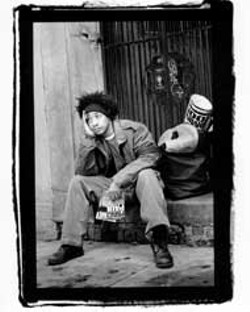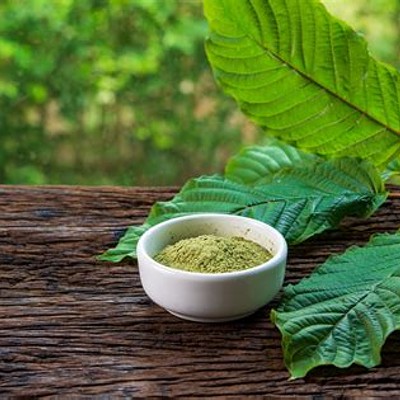Of popular music's five best-selling genres (country, R&B/urban, rap/hip-hop, rock and pop), only rap has experienced growth in its market share over the last five years, according to the Recording Industry Association of America (RIAA). On the radio, rap and urban music have dominated, providing 61 percent of last year's top 100 songs as tabulated by Nielsen Broadcast Data Systems. This radio saturation far outstrips the genres' combined sales — which only account for about 25 percent of the market (the same as rock) — but it reflects how culturally important the music has become recently.
These trends are cyclical, and the chart dominance of any genre is temporary, mainly because the major record labels stick to a familiar process of cloning whatever is popular and then oversaturating the market with it. Inundated by a flood of weaker acts similar to the chart-toppers, every act's stock is depressed and the genre burns out. From 1989 to 1993, rock saw its market share cannibalized by a then seemingly unstoppable stream of country music. Similarly, country music was, at its sales peak, accounting for nearly one-fifth of all music sales; now its share is half that size, having given way to a resurgence of rock and, for a moment, pop music. In 2001, pop music was the second best-selling genre (after rock), before losing a quarter of its audience the very next year. The beneficiary of that market share? Rap and urban.
But the same thing is happening in rap, where, increasingly, attaching yourself to a trend — or more importantly, a producer — is paramount to furthering your career. Where would The Game be without Dr. Dre? How about Lil Jon's crew?
9th Wonder, the Winston-Salem-born DJ for the group Little Brother, credits much of his success (he's produced Jean Grae and Destiny's Child) to the patronage of Jay-Z and The Roots' drummer, ?uestlove.
"The way the game is now, it's hard to make it without some kind of co-sign," 9th Wonder says. "There are a lot of people who like music first, no matter who you are — only thing they need is a co-sign from another music lover. But there are another group of people who are boogleheads, just watch TV all day and they need a co-sign from a major artist to let them know, 'It's OK for me to buy it.' I hate it, but it's like a lot of cats didn't pay attention to me until [Jay-Z's] The Black Album."
According to 9th Wonder, Little Brother's album The Listening inspired Jay-Z to call him in to produce "a beat with a nice DJ Premier bounce." This illustrates another problem with rap these days — the music is endlessly derivative, and the formulas are codified from the mainstream to the underground.
"All the underground albums sound alike," opines the underground hip-hop legend Prince Paul. "[Once], the underground was a little experimental; now you have to have a sound to be underground."
Prince Paul rose to prominence with Stetsasonic and then cemented his reputation after producing De La Soul's 1989 breakthrough debut, Three Feet High and Rising. That album blew open old preconceptions of what hip-hop could sample, going beyond funk and dipping into a variety of pop forms. Even a quick listen reveals no comparison between the rich sonic signature of Prince Paul or Public Enemy's Bomb Squad and the production ethos employed today. According to Paul, it's just part of an environment that's become increasingly like a sandwich shop rather than a musical endeavor.
"[Now a rapper says] 'Send me the track. You don't have to be there. My man Merlin here is going to record me at the studio and I'll just send it back to you.' The camaraderie of getting together and making a record has totally been lost. It shows in the lack of arrangements," Paul suggests.
But the current hip-hop underground is even further subdivided into its retro-purist and avant-garde camps.
"There's an underlying underground. I use this term lightly, but there's another community that's not mainstream, that still abides by these particular principles of hip-hop as an attitude and most of them are the ones [who] have a problem with what they see on radio and television and how they see it depicted," explains KRS-One.
Such attitudes become ingrained and exclusionary. When success equals sellout for a large proportion of an underground artist's audience, crossover success becomes more difficult, further separating the camps.
"Kids today — and labels want to do this — they want to put people in boxes. They like to say this is this and this is that," says 9th Wonder. "Why don't you let the people decide what it is, instead of boxing something up? This is what is messing hip-hop up, because a lot of these underground kids now say, 'Lil Jon's not hip-hop, this is not hip-hop.' But Luke Skyywalker was? It's very contradictory. N.W.A was hip-hop but G-Unit ain't? I don't get these underground cats sometimes."
Just beneath the surface of the underground's parameters is an undeniable facet of racial identity. It's an oft-repeated truism that 70 percent of rap music buyers are white. How many contemporary mainstream rappers are white? Only one comes to mind, but the underground is flush with them. Attend their shows and you'll find an almost entirely white audience, whether we're talking Atmosphere, MC Paul Barman, Sage Francis or Aesop Rock. Which is not to suggest that such interests are to the exclusion of other artists — certainly artists such as Talib Kweli, Common and Mos Def have sold plenty of records while appealing to a broad cross-section of music lovers, commercial and underground. But at the same time, one wonders if mediocre albums, media oversaturation, questions of authenticity and commercialism and an increasing division over the issue of what's "true" hip-hop won't spell the same doom it has in almost every othner genre at one time or another.
At this point in the game," 9th Wonder says, "I just want someone to make a solid album."
Speaking of Vibes_feature.html
-
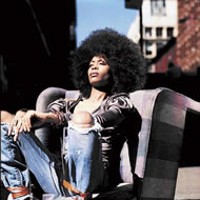
The New Mythology of AFRO-FUTURISM
Jul 20, 2005 -
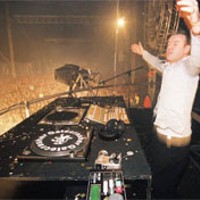
Nothing Fails Like Success
Jul 13, 2005 -

Scarlet Begonias
Jul 6, 2005 - More »
Latest in Music Features
More by Chris Parker
-

CD Review: Antibalas
Sep 28, 2012 -

CD Review: Baroness' Yellow and Green
Sep 25, 2012 -
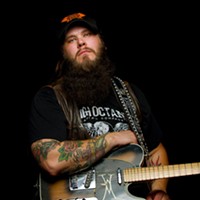
Southern comfort: Whitey Morgan
Jul 19, 2012 - More »
Calendar
-
 Ride The Lightning - Metallica Tribute Band @ Amos' Southend
Ride The Lightning - Metallica Tribute Band @ Amos' Southend -
Ross Lynch & Rocky Lynch present The Driver Era: Live On Tour @ N.C. Music Factory
-
Tyler Braden - Meet & Greet Experience Upgrade @ Coyote Joe's
-
 Zingara @ Blackbox Theater - Charlotte
Zingara @ Blackbox Theater - Charlotte -
 Blind Guardian The God Machine Tour @ The Underground
Blind Guardian The God Machine Tour @ The Underground
-
Justin Fedor's tribute shows benefit Levine Children's Hospital
Charlotte musician's concert series takes place at the Neighborhood Theatre
-
The night Dickey Betts broke my guitar 7
All the while, Gregg Allman sat face down in mashed potatoes
-
Elenora Fagan balances life between rock and rap 2
Band mixes an amalgam of genres, including rock, hip-hop, reggae and jazz

